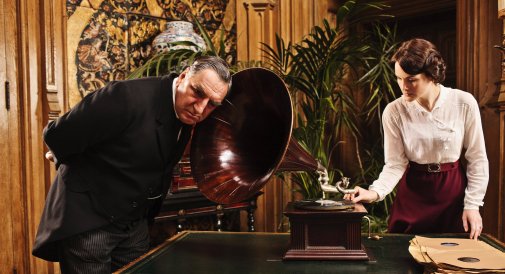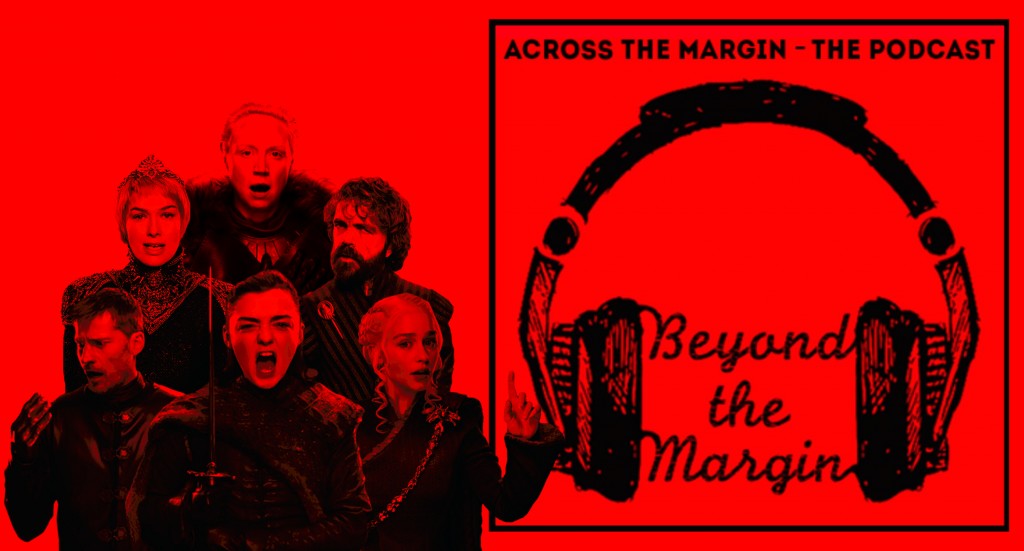by: Michael Shields
While seemingly not for everyone, we examine why Downton Abbey is positively for us ((This discussion is rife with spoilers – be warned.))…..
About a fortnight ((I have desired to use this word for some time- Paydirt!)) past I attempted to come clean about my recent infatuation with Downton Abbey. I brought it up in a mixed crowd and my confession was met with equally mixed reactions. A few of the conversation’s participants were down with Downton of course, but the others scoffed at the thought. They were sick of hearing about it they said. Why would they want to watch a British ((Spoken in the tone of a slang word)) period piece about a family of aristocrats they wondered? Fair enough. Downton Abbey is, strictly speaking, a soap opera ((Spoken as a slang word once again.)), there are no two ways around it. But I am here to contest that although it is a soap opera, that although it is a period piece, and although it is as British as Vinnie Jones, Dame Helen Mirren, fish and chips, and double-decker buses combined, it is a damn good soap opera, one of such worth that it commands its rightful place as one of the finer programs currently gracing the small screen. That day, about a fortnight ((Now I am overdoing it, I apologize.)) past, I didn’t have the energy to thoroughly explain the splendor of that popular show everyone is talking about, set in a Yorkshire country estate. In truth, I was somewhat embarrassed. But I have mustered the strength, here and now, to finally make that point…..
I cannot relate to a family of nobility from the early 1900s. Nor can I fully identify with those that so dutifully serve upon them, those that act as the backbone of the estate ((And the backbone of the show itself, as the characters who roam the servants halls are the most relatable, and oftentimes the most interesting.)). It is a world I know little about. But therein lies a reason to watch, in that it offers the opportunity to learn something new, to experience a world so far removed from what is the norm. I would be lying if I told you I knew a butler’s true responsibility before Downton. My knowledge of British aristocracy is novice at best, as too is my familiarity with WWI, the burgeoning women’s rights movement of the early nineteenth century, the Spanish influenza pandemic, the Marconi Scandal, or the formation of the Irish Free States. Through Downton Abbey we get a small glimpse into each of these moments in time.
But in this light, I also am not familiar with the ins-and-outs of the drug game in Baltimore ((Truth be told I know a lil’ bit, tales for another day.)), nor do I have a familiarity with the intricacies of the crystal meth trade in Albuquerque. I have no idea what it would be like to grow up in a family where the head of the household is a mobster, or the depths of despair one would have to deal with living in a funeral home. I am hardly knowledgeable of the inner workings of Madison Avenue advertising agencies in the 1960s, and I certainly have not had the opportunity to travel abroad to the continents of Westeros and Ethos to experience life on the edge of a decade long summer ((It should be noted, so the reader can have a frame of reference, that the author’s preferred television dramas are: Six Feet Under, Breaking Bad, Mad Men, The Wire, Game of Thrones, The Sopranos, Battlestar Galactica, Deadwood, Boardwalk Empire, and Friday Night Lights.)). It does not take being familiar with these worlds to appreciate them, one must merely open their heart and their mind, let go, and enjoy the journey.
All great dramas on television possess polarizing characters. If I don’t admire you some, or emphatically detest your vile behavior, there is a good chance I won’t be taking a ride with you for an hour each week. Downton Abbey possesses an intoxicating mix of heroes (Mr. Carson, Mrs. Hughes, Lady Sybil, Cora, Anna Bates, and Matthew Crawley), villains (Mrs. O’Brien, Thomas), and an intriguing group of inbetweeners (Lord Robert, Lady Mary, Lady Edith, and Mr. Bates). But most importantly Downton Abbey has Dame Maggie Smith, who plays Countess Violet. Now, there is one inarguable fact about Downton Abbey. Something that even the most stringent of non-believers would be forced to agree upon if a few episodes were thrust down their unwilling throat: Dame Maggie Smith is an absolute treasure, a joy to watch in every sense of the word. Maggie has been furnished with some of Julian Fellowes’ ((Lead writer of Downton Abbey.)) wittiest dialogue, and she is spot on with the delivery, snapping her sharp tongue at every opportune moment, lending comic relief packaged as earnest levity in even the most precarious of situations. She has a gift ((Dame Maggie Smith won 2 Oscars in the 1970s, for her performance in California Suite and in The Prime of Miss Jean Brodie.)), and that gift is on display week in and week out on Downton Abbey ((She has won two Emmy’s and one Golden Globe for this role, deservedly.)).
The thing I find most intriguing with Downton Abbey, and shows of its ilk and caliber, is the code of ethics displayed by its key characters. As Omar Little once stated so prophetically: “A man must have a code”, and the integrity in this line of thinking is honorable, and appealing to observe and examine ((It is possible to argue that Jesse Pinkman has a code, Seth Bullock surely had one as did the aforementioned Omar Little, Ser Jorah Mormont is surely governed by his, and even Don Draper has a code of ethics he lives by, although somewhat disconcerting at times.)). A code of ethics is present throughout the ranks of servitude at Downton, and most notably in one man: Mr. John Bates. Few things in life are more important to Mr. Bates than his morals, and he lives his life in a sort of reserved manner so as to stay true to those ideals at every turn. His words, and his actions, are designed to cause others no harm, even if this muted way of life affects him adversely. Although his honorable behavior is endearing, it does become frustrating from time to time, watching Bates pushed around with such ease due to the ideals he holds so dear. But Bates can’t help himself, he is who he is….a good man ((We think!)).
The writing in Downton Abbey is nothing short of courageous. I have heard the criticism that the narrative moves too fast at points ((An unimaginable critique as we were dangled over the coals for two full season before two star-crossed cousin-lovers inevitably wed.)); that Julian Fellowes is “in a hurry” and “that Downton Abbey doesn’t take advantage of its own story”. I find bravery in this sort of writing, as the writer appears confident that there is much more where that came from. Why linger, why stretch out what need not be? If we had been forced to deal with Lord Crawley’s financial troubles for the remainder of Season 3 I assure you that I would not be writing this piece, touting the show and the audacity of the lone writer. Mr. Fellowes had much bigger plans for Season 3, rooted in one of the most distressing plot-lines in the show thus far (Anyone who is up to date with the current season of Downton Abbey bears the cross of a heavy heart.). Julian Fellowes strategically plants his characters in stirring situations, inventively deals with the complications, then brazenly moves forward.
Nobody is perfect, nor is any television show. There are faults in Downton Abbey, some glaring. When character’s actions are used to drive the plot, as they are so often in Downton Abbey, those characters can come off as inconsistent. They can often sacrifice morals, ideals, and even integrity for the sake of the story. Lord Crawley is the most recent example of this, as the rock Downton was built on now appears fully incompetent due to a few decisions he has made, all of which have been the main focal point of the rising action of the season thus far. But complex motives and intrepid actions based on those intentions are an attribute to the grandeur of the show, not a detriment. Life is messy. No one can definitively say what one would do when faced with a pressing situation, until they are in that situation, and the characters in Downton Abbey are cursed with as many failings as the rest of us.
Downton Abbey doesn’t need the aid of my heartfelt endorsement. They are all good. In a mere two seasons it has taken reign as the international television series to receive the largest number of nominations in the history of the Primetime Emmy Awards, with twenty-seven in total! It was the most watched television series on both ITV and PBS, and subsequently became the most successful British costume drama series since the 1981 television serial Brideshead Revisited. By the outset of third season, it had become one of the most widely watched television shows in the world.
It is often said that you always think of the perfect thing to say after the fact. The moment you walk away from a conversation you devise that perfect retort, that would have slayed them where they stood. Although I failed to convey my favorable thoughts about Downton Abbey unto that mixed crowd we spoke of earlier, I was able, here and now, to finally account for myself some – to explain why I am hooked just like so many others. Yes, I am addicted to a British soap opera, and I am – at long last – proud to proclaim so. I am…all in.







Mixed crowd indeed!
Free Mr. Bates!